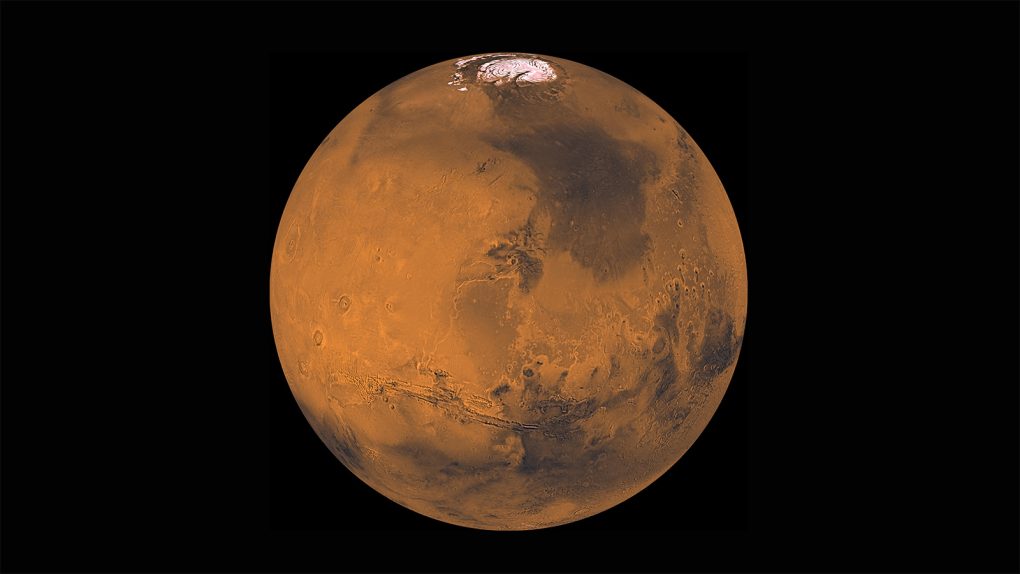Scientists have known for some time that Mars once had lots and lots of water — in fact, some of it is still there — but exactly where it existed on the planet has been pretty difficult to figure out thanks to billions of years of surface erosion. Now, NASA’s Mars Reconnaissance Orbiter has discovered one place on the red planet that held a whole bunch of the life-giving liquid: an incredibly massive lake that, during its peak, held ten times the amount of water of all the Great Lakes, combined.
It’s an incredible discovery, and one that could help inform future exploration of Mars in the hopes of finding evidence that life once existed there. The idea that Mars was one a life-giving planet much like our own is one that has tantalized scientists for a long, long time, and if they ever hope to prove it, they now have a promising lead on where to start looking.
But even if Mars never hosted living organisms, its colossal lake could still help inform researchers painting the picture of life’s origins here on Earth. “Even if we never find evidence that there’s been life on Mars, this site can tell us about the type of environment where life may have begun on Earth,” Paul Niles of NASA’s Johnson Space Center explains. “Volcanic activity combined with standing water provided conditions that were likely similar to conditions that existed on Earth at about the same time — when early life was evolving here.”
The lake was discovered thanks to the detection of huge mineral deposits hiding underneath the surface. It is believed that those minerals were the byproduct of volcanic underwater vents, much like those that exist deep in Earth’s oceans. On our planet, those hydrothermal vents actually host life, but it’s unclear whether the same was true for ancient Mars.
At the moment, the idea of a massive Martian lake with hydrothermal features is incredibly exciting, but we’re still a long way from actually finding anything suggesting the existence of life there. There are no current plans to actually investigate the site, dig, or study the area beyond what is already being done, but that could change.








